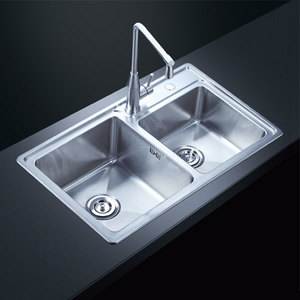-
 Find in Members
Find in Members Find in Videos
Find in Videos Find in Channels
Find in Channels
This website uses cookies to ensure you get the best experience on our website.
To learn more about our privacy policy Click herePrivacy Preference
- Tags - #Stainless Steel Sink Manufacturers
-
- Last updated September 18, 2018 1 comment, 1,131 views, 1 like
- Leanhu Village, Mazhu Town ,Yuyao , Zhejiang , China - Get Directions
More from stainlesskb112 afa
More in Politics
Related Blogs
Archives
How Do Stainless Steel Sink Manufacturers Respond To Materials That Are “Too Soft”?
Body
During the installation process, users may have problems with the materials, such as the material is too soft to affect the quality, the material is too thin to affect the use, etc. If the case is the case, the most likely encounter is that the user complains about the material. Too soft." To explain this problem, we need to clarify some basic concepts. To understand the AFA Stainless Steel Sink Manufacturers , let me explain it and give an example.
1. Hardness: The ability of a material to partially resist the pressing of a hard object into its surface is called hardness. For example, if the two blades are opposite each other, the surface with low hardness will have a dent.
2. Yield: Yield strength, the yield limit when the metal material yields. For example, spend more energy to start bending the steel rod.
3. Tensile: Tensile strength, the material is subjected to the maximum stress value before breaking. For example, the steel bar can be broken by the maximum force.
Case 1: The material is too soft and cannot be aligned when the coil is rolled.
Analysis: When the material is rolled up (or rounded), the main effect on the forming is the yield strength. It may be that the material yield strength is quite different from the previously processed material, so the coiled tubing cannot be aligned. Of course, steel products are not crafts, and the performance will be reasonably fluctuating. When it is within the scope of supply standards, this problem is usually solved by adjusting the coiling equipment.
Case 2: The material is too soft and the stamped surface is wrinkled or uneven.
Analysis: Wrinkling or unevenness of the stamped surface is usually caused by uneven material flow. When the yield is too low and the elongation is too high, these problems are likely to occur when stamping smooth large-sized parts.
Photos
Map
-
Locations on MyWorldGo
Location Information
- Location: Leanhu Village, Mazhu Town ,Yuyao , Zhejiang , China - Get Directions
- Formatted Address: Le'anhu, Yuyao, Ningbo, China
- Street Address: Ningbo
- Country: China









Comments